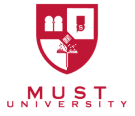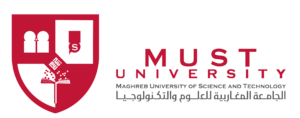Artificial Intelligence
⸺ Designed for students & working professionals, the AI Engineering Certification Program at MUST is a 6-month journey that blends flexibility with excellence. Delivered in a 100% online format, it combines self-paced, world-class content from Coursera for Campus with personalized live sessions led by expert instructors from MUST. Participants gain practical, hands-on experience in machine learning, deep learning, computer vision, and generative AI—empowering them to stay ahead in a rapidly evolving digital landscape. Participants complete a real-world Capstone project at the conclusion of the program.
Registration
Please enter your details below and click the ”Register” button.
Overview
Program at a glance
- Format: Hybrid (Online + In-person)
- Languages: English & French
- Duration: 6 months, with a flexible schedule
- Start Date: Starts every quarter (Jan, Mar, Jun, Sep)
- Location: Online & MUST Campus, Lac 3, Tunis
- Cost for Professionals: TND 2,800 (Eligible for TFP Refund)
- Cost for Students: TND 1,400 (50% Discount)
- International participants: 1400 USD
Why join this program?
- Learn from the best: Global leaders IBM, Coursera, & MUST.
- Get industry insight: Mentorship and real-world guidance by seasoned AI experts.
- Study on your terms: Flexible learning experience that blends online modules, interactive labs, & hands-on projects.
- Advance your career: Build in-demand AI skills and earn a recognized professional certification.
Outcomes
What you will learn?
- Build a solid foundation in AI and explore the latest innovations.
- Learn to design and implement effective AI solutions.
- Master Python for AI applications.
- Create generative AI models to drive real-world impact and career growth.
Who is this program for?
- Aspiring AI Professionals looking to develop in-demand AI and machine learning skills.
- Data-Driven Practitioners eager to deepen their understanding of AI tools and techniques.
- Digital Transformation Tech Leaders & Managers seeking to harness AI for strategic decision-making.
- Industry Experts & Innovators aiming to lead AI-powered transformation in their fields.
Topics
Main topics
- Machine Learning & Deep Learning Foundations.
- Generative AI and Large Language Models (LLMs).
- AI Engineering with Transformers & RAG.
- Capstone Projects and Real-World Applications.
Instructor(s)
- Academic Leaders from MUST University and Partner Universities: Our team includes leading academics with expertise in AI and related fields, including internationally recognized experts in their respective domains.
- Industry Professionals and Consultants, including IBM-certified instructors: We feature seasoned experts from various industries, including those with significant experience in data and technology. This group includes certified instructors from IBM, who bring real-world experience and practical insights into the curriculum.

